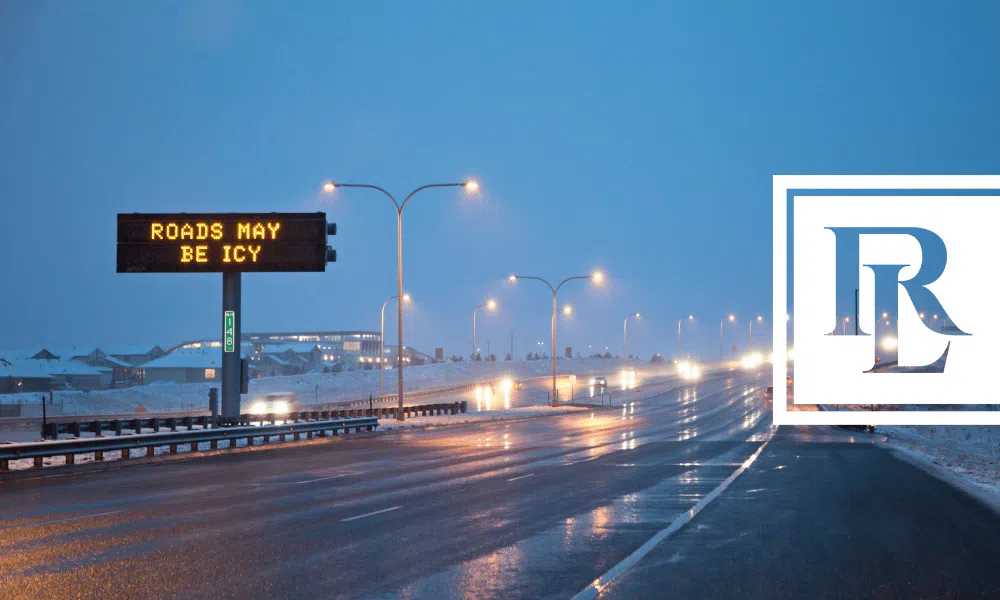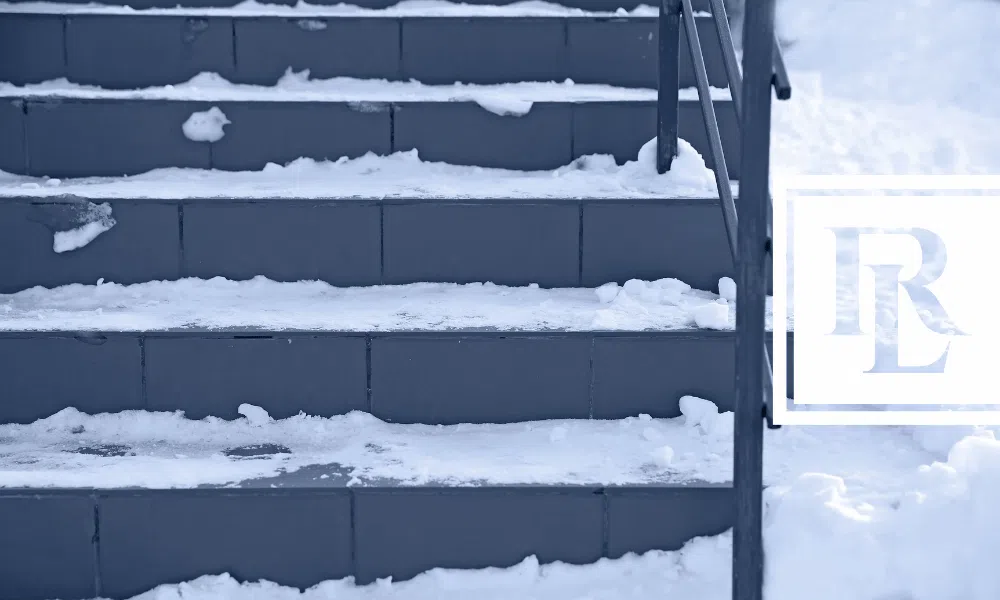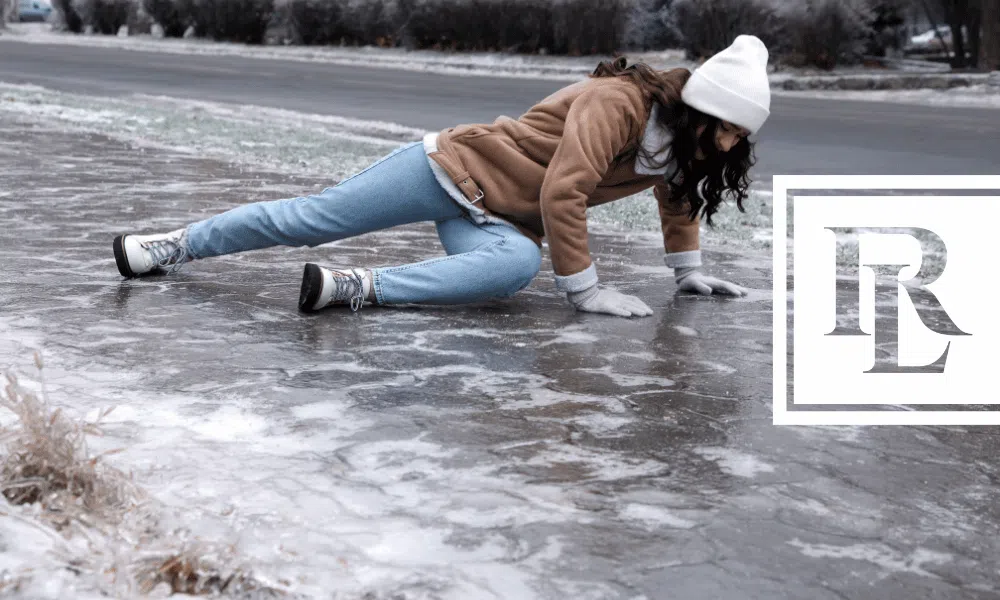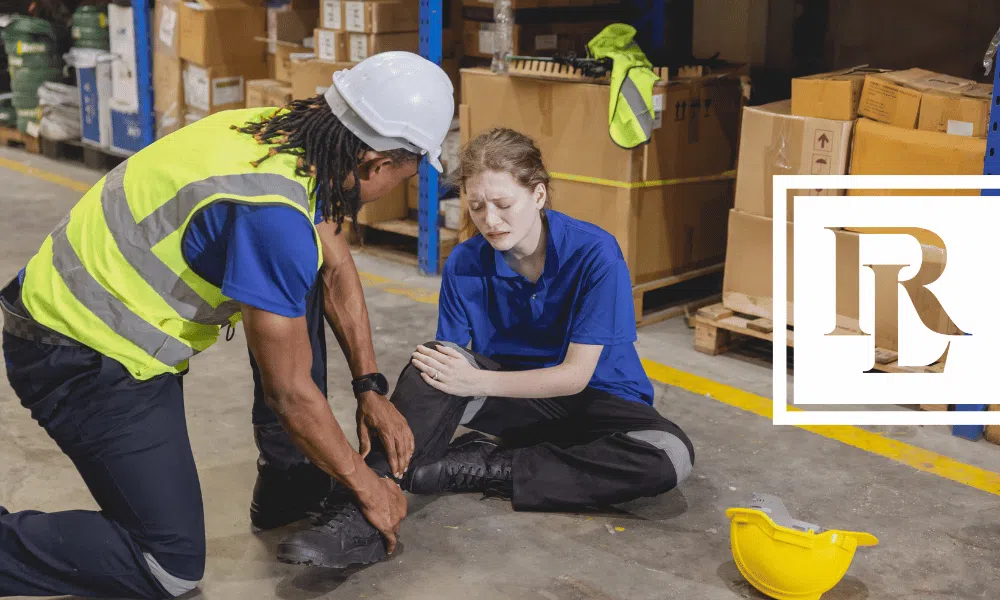There is no doubt about it, as the winter months persist with their inclement weather, the risk of sustaining a personal injury increases. One of the more common injuries people experience, other than those suffered during a car accident, is accrued because of slip and fall accidents. The big question is: if you slip and fall on a patch of ice, who is held liable?
Slip and Fall on Public Property
According to The Law Dictionary, public property is defined as any property owned by the government or a community, not by an individual or company. Typically, the city is responsible for clearing all snow and ice from walkways located in the areas around public buildings and properties, such as public libraries, courthouses, post offices, public schools, public bus stops, and park pedestrian paths. This responsibility is often referred to as duty.
Duty: A legal obligation requiring individuals to follow a standard of reasonable care to keep others from harm.
If reasonable action to fulfill the obligated duty to maintain a safe area has not been performed, the city may be considered negligent and therefore liable.
Slip and Falls on Private Property
Private property is defined as any property that is owned by a private individual or company and not by the government or a community. Some examples of private property include homes, apartment buildings, small businesses, and retail stores. In the case of snow and ice on private property, the landowner has a duty to mitigate the potential dangers that these elements pose. In Rhode Island, Massachusetts, and Connecticut, the law states that property owners are expected to clear ice and snow off sidewalks, stairs, and other outdoor areas within a reasonable time after the snow has stopped falling. However, local ordinances vary from city to city and town to town, so make sure to check for the specific area your property is located in. If the landowner of private property failed to use reasonable care to prevent injury, they may be held liable for a slip and fall accident.
Proving Your Case
Before proving your case, you must first determine whether you have a case. To determine if your slip and fall accident occurred because of another’s negligence, you must first answer the following two questions:
- Could the owner have known about the hazard?
- Could the owner have prevented the fall?
If the answer to both of those questions is “yes,” then the next step is to provide proof. If you have ever had previous communication with the property owner about the hazard, make sure to keep records of all letters, emails, or phone calls. Taking photographs of the area is another great way to provide proof that there was a dangerous condition.
A slip and fall accident on an icy sidewalk can lead to serious personal injuries. Make sure you do your part in preventing these injuries from happening. If you have experienced a personal injury due to the negligence of another, contact Rob Levine Law today! We can help prove your case and get you the justice you deserve!






